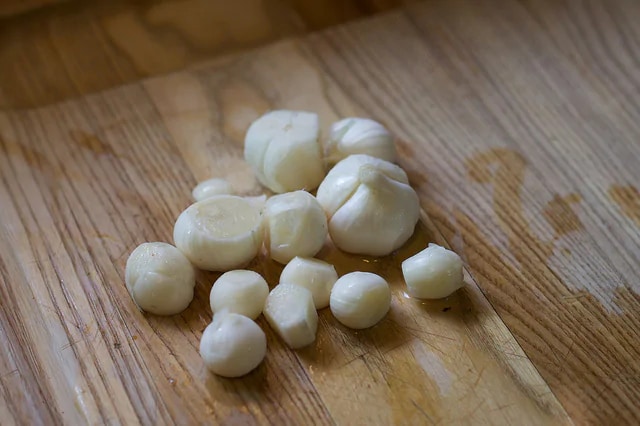-
-

FLUORIDE
Discover how stannous fluoride toothpaste prevents cavities and other oral health issues. Learn the key benefits of fluoride for teeth and its best uses.Fluoride plays a vital role in oral healthcare...

TEETH WHITENING
Teeth Whitening Serum for a Brighter, Confident SmileWho does not want whiter and brighter teeth? Thanks to the many teeth-whitening products available today...
-
Science & Innovation
- ORAL HEALTH ASSESSMENT
- Colgate® | Toothpaste, Toothbrushes & Oral Care Resources
- Oral Health
- Garlic & Tooth Pain


Garlic is a well-known superfood rich in vitamins B, C and selenium that is known to stave off colds, and may help protect against oxidative damage. It's also known for its distinctive smell. In culinary contexts, the odour is often embraced. But garlic is touted as a traditional remedy for tooth pain. And when we think about using garlic for home remedies, it can lead to wrinkled noses. After all, who wants to smell like garlic? And when it comes to oral health specifically, who wants their breath to smell like garlic? Read on to discover more about whether garlic might help ease the discomfort of a painful tooth.
Can Garlic Help with Tooth Pain?
According to some, garlic can ease tooth pain. It's always best to consult a dentist about tooth pain, as cavities aren't always the culprit. And if tooth decay is the culprit, your dentist can treat the underlying problem. But traditional and at-home remedies do offer something you can try at 3 a.m. when you can't get a hold of your dental clinic. And there is some clinical support for the idea that garlic might help with tooth pain. A compound found in garlic, allicin, is widely credited with antibiotic activity, which might translate to helping to ease tooth pain.
How Does It Work?
A 2014 review of clinical research published in international journal, Avicenna Journal of Phytomedicine, outlines the details of garlic's benefits, and it covers ways in which the scientific community has investigated claims that the plant can help battle bacteria, viruses, fungi, tumours, diabetes, cardiovascular disease, and more. They conclude that more research is needed, and that we just don't know that much about potential side-effects from taking garlic or long-term safety, especially for young children and pregnant or nursing women.
What Kind of Garlic?
Raw garlic is considered best for medicinal purposes, in order to preserve its active compounds. Suggestions range from sticking a peeled, raw clove of garlic right on the sore tooth to making a paste of raw garlic cloves, salt and olive oil, then applying to the tooth. With remedies like these, there's definitely no avoiding the signature smell. Some people advise preparations made with garlic powder — the allicin range for powdered garlic falls within the range that raw cloves can have, but they are on the lower side. With any of these options - whether powdered garlic, whole, raw garlic cloves, crushed raw garlic, or a paste made from raw garlic cloves - you will definitely end up with garlic breath. It might be worth it to give it a shot until your dental clinic is open if your tooth really hurts though.
Garlic for Tooth Pain
Always see your dentist about any changes in your mouth health, such as tooth pain. It's also best to ask a health professional before trying a new remedy, especially if you are pregnant, nursing, or on other medications. For example, people taking blood thinners should be wary of garlic supplements, because taking garlic in that amount can make it even harder for blood to clot. Be sure to ask a child's paediatrician before giving them a new remedy as well.
Related Products

Helping dental professionals
More professionals across the world trust Colgate. Find resources, products, and information to give your patients a healthier future







